Fentanyl is an addictive and dangerous opioid drug that was responsible for the vast majority of opioid overdose deaths in the United States last year.[1] Fentanyl is a synthetic opioid meaning it is man-made. Although it is used in medical settings to alleviate pain related to surgery or cancer, fentanyl is also becoming an increasingly common street drug. Illegally manufactured fentanyl (IMF) is nearly 50 times stronger than heroin and 100 times stronger than morphine. IMF has also been found in other street drugs such as heroin, counterfeit Xanax, and even marijuana.[2]
Prescription fentanyl comes in the form of an extended-release patch and an IV drop–both of which are primarily only available in medical settings. Street fentanyl, on the other hand, often comes in the form of a white powder. However, it can also be found in eye drops, nasal sprays, or dropped onto small pieces of paper or candies.[2]
Whether prescription fentanyl or illicitly manufactured fentanyl is being abused, the drug is extremely dangerous and deadly. The CDC reports that more than 150 people die each day from drug overdoses caused by synthetic opioids like fentanyl. Even a small, barely visible amount is enough to cause an overdose.
Like other opioids, fentanyl is also highly addictive. If you or a loved one are abusing or addicted to fentanyl, it is vital that you seek professional help immediately. Our team at New Jersey Interventions can help you and your loved ones find a fentanyl addiction treatment program in New Jersey.
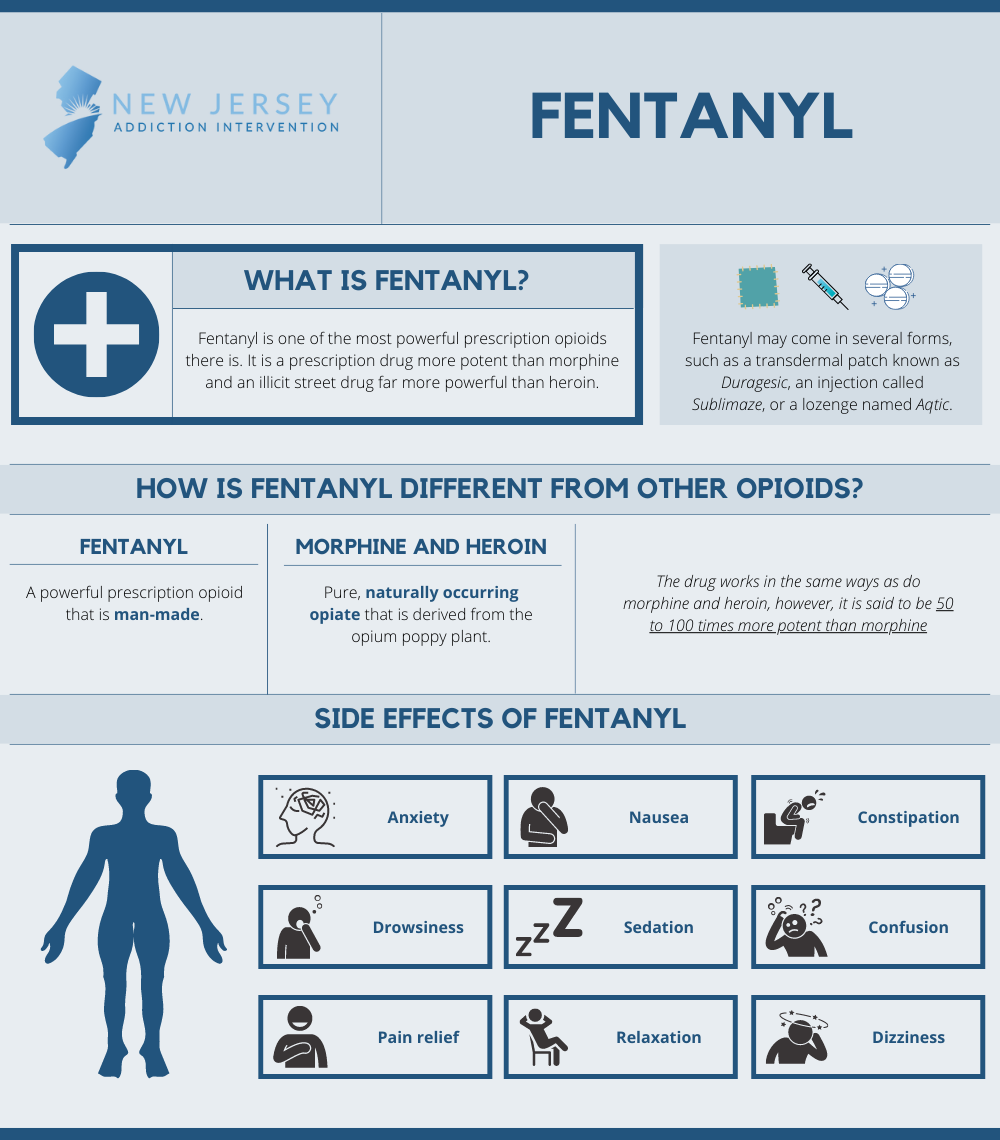
Signs and Symptoms of Fentanyl Addiction
Despite a variety of governmental tools being deployed in New Jersey by the past and current governors, the state’s fentanyl death toll continues to increase. Local news reports that New Jersey is likely to end 2021 with more than 3,200 drug overdose deaths–most of which were caused by synthetic opioids like fentanyl.[3]
Because fentanyl abuse is so widespread, it’s important to be able to spot the symptoms of fentanyl addiction.
When abused, fentanyl produces similar symptoms as other opioids. While under the influence of the drug, users may experience calmness, relaxation, a feeling of warmth, reduced pain, and euphoria. They may also have pinpoint pupils, flushed skin, and seem as though they are going back and forth between a state of consciousness or “nodding out.”
People who display these symptoms on a regular basis may be abusing an opioid like fentanyl. Once drug abuse turns into drug addiction, other behavioral and emotional signs may be observed. Additional symptoms of fentanyl addiction include:
- Continuing to use fentanyl despite problems it is causing in one’s life
- Lying to loved ones about drug abuse
- Developing a tolerance that results in the need to take higher doses of fentanyl
- Experiencing intense cravings for fentanyl
- Spending excess time using, buying, and recovering from the effects of fentanyl
- Compulsive and risky behaviors such as stealing or breaking the law
- Isolation from loved ones
- Loss of interest in activities that were once enjoyed
People who are addicted to fentanyl may also experience flu-like withdrawal symptoms if they suddenly stop taking the drug. Symptoms such as sweating, body pain, diarrhea, nausea, vomiting, anxiety, and cold chills indicate that a person should seek help from a fentanyl addiction treatment center in New Jersey immediately.[4]
New Jersey Treatment Programs for Fentanyl Addiction
Many people who are addicted to fentanyl will continue using the drug simply to avoid the painful withdrawal symptoms it causes. As a result, fentanyl rehab programs begin with medically-assisted detox.
Fentanyl Detox
Fentanyl withdrawal can last for several days. Most people have symptoms for at least one week. Although the symptoms of withdrawal are not life-threatening, they can be challenging to overcome without medical and emotional support.
Fentanyl detox programs in New Jersey have doctors who can prescribe medications that reduce symptoms of withdrawal and cravings. They also have nurses who can monitor each patients’ symptoms and provide supportive care. Many medical detox programs host support groups, therapy sessions, and other activities to help individuals in their healing journey.
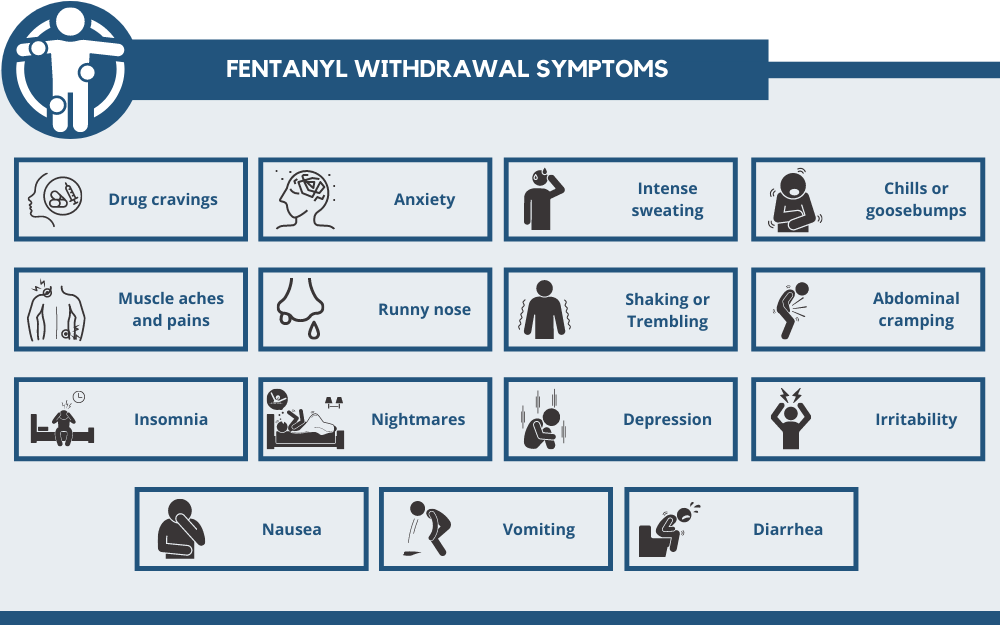
Medication-Assisted Treatment (MAT) for Fentanyl Addiction
Most fentanyl addiction treatment programs in New Jersey use a widely dignified approach called “medication-assisted treatment” or MAT. MAT programs combine behavioral therapy and counseling with FDA-approved medications to help give patients a more comprehensive, individualized treatment approach.[5]
Some of the most popular medications that are used to treat fentanyl addiction include:
Patients may begin taking medications during day two of detox and they can continue taking their medications as long as is needed. These medications help alleviate symptoms of withdrawal, reduce drug cravings, improve treatment outcomes, and reduce the risk for relapse.
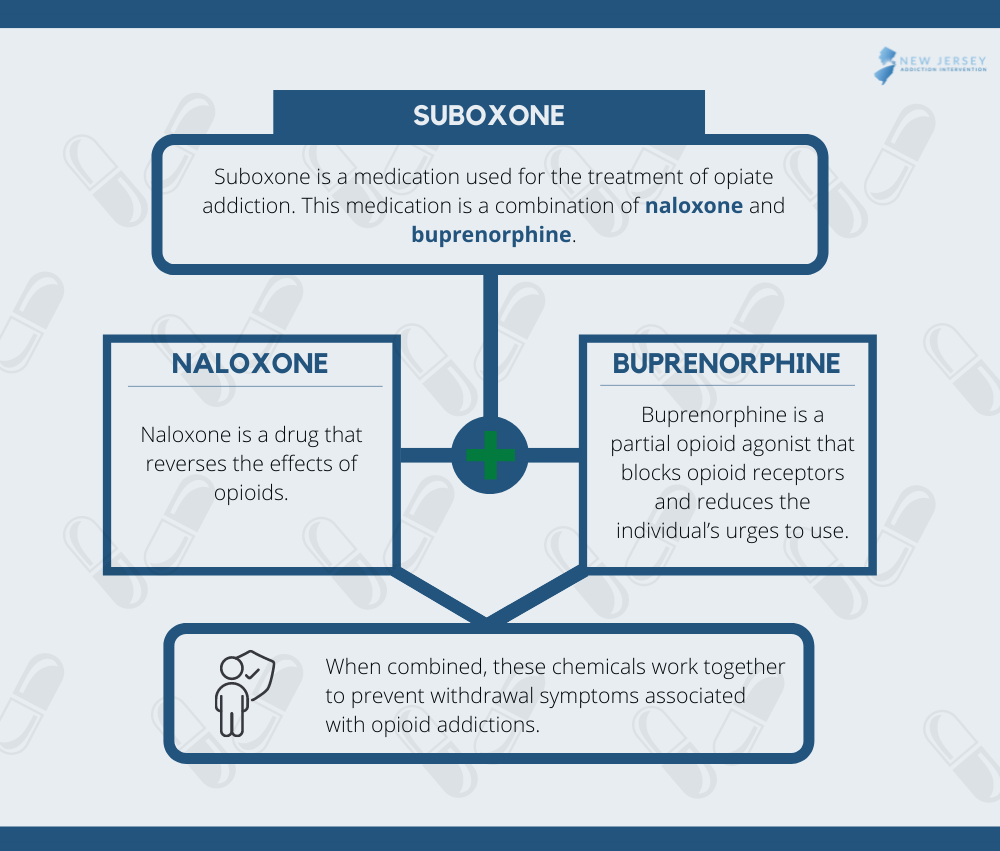
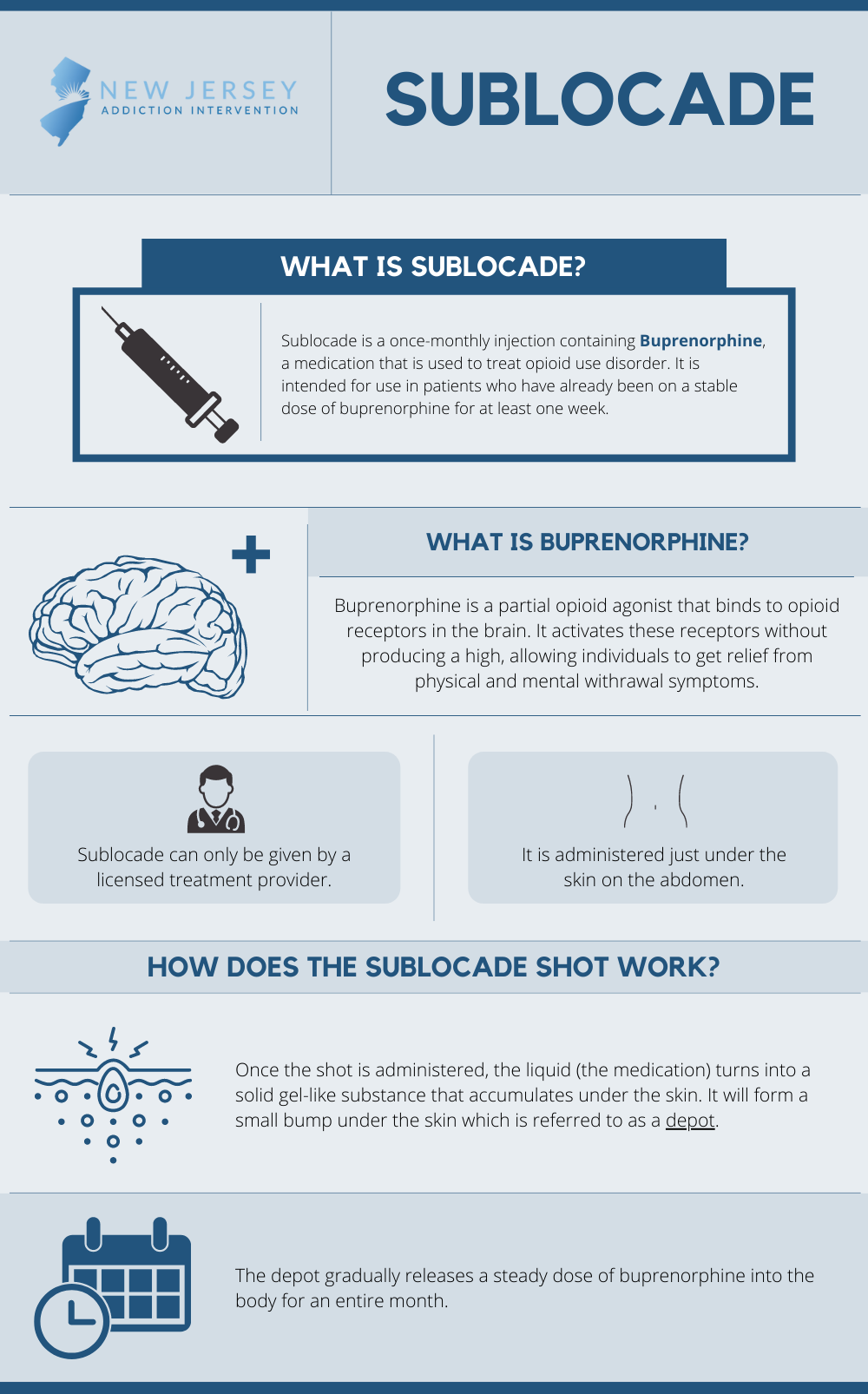
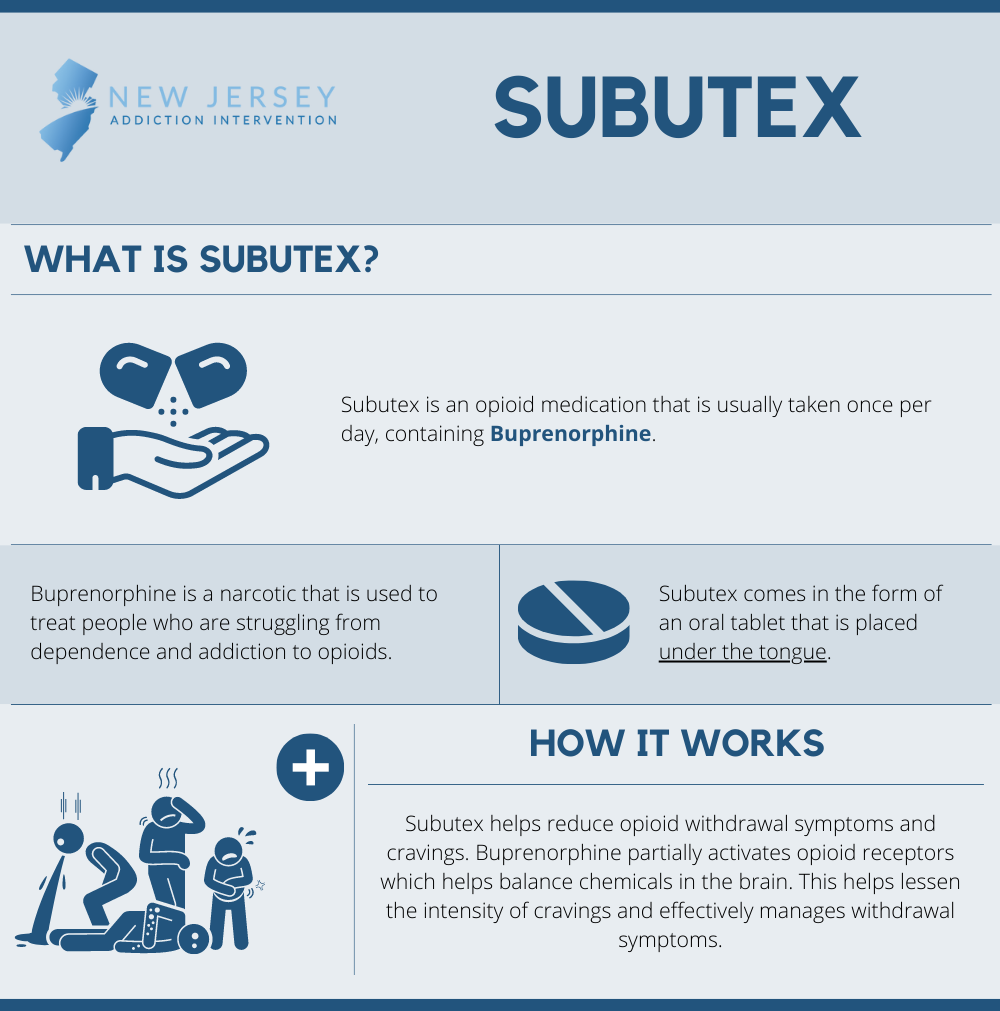
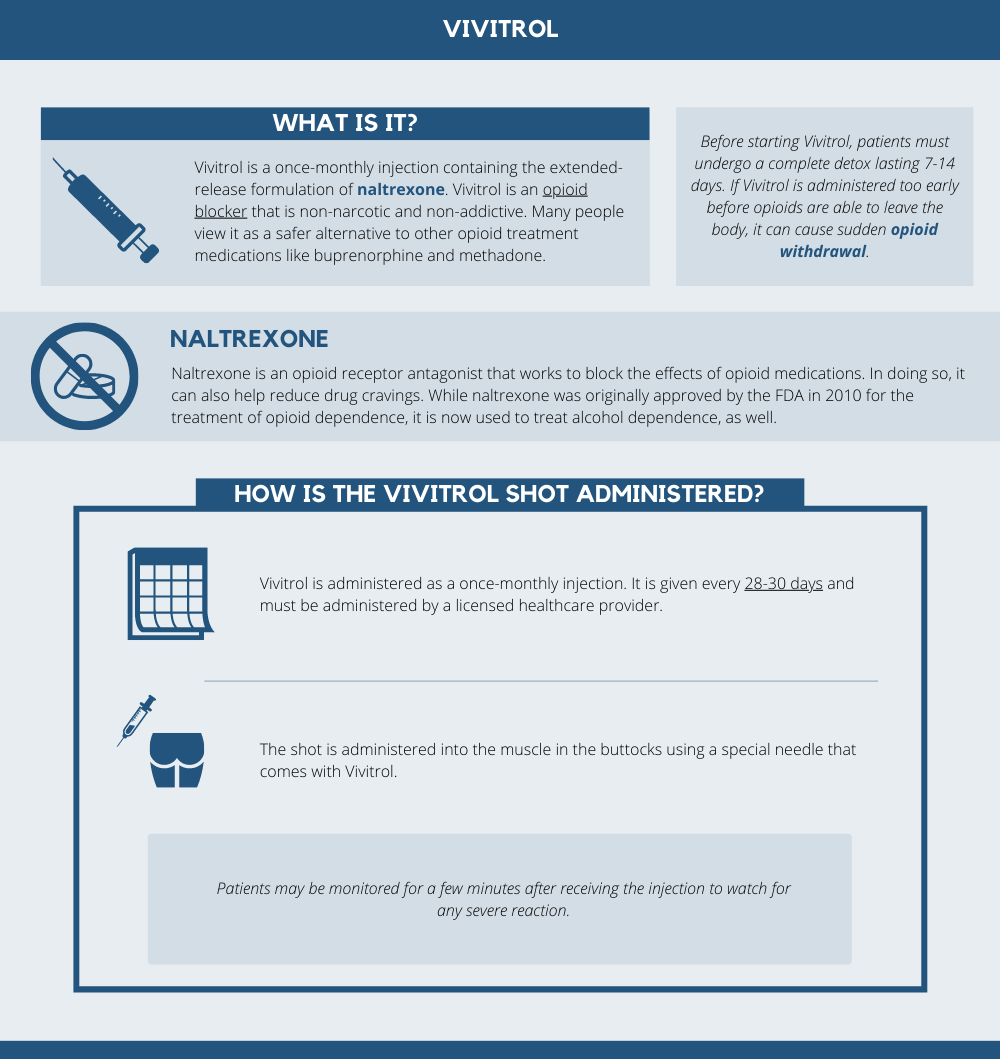
Individualized Care
Like all other forms of treatment, the most important part of fentanyl rehab is that each patient receives individualized care and therapies that are tailored for their specific needs. Only through behavioral therapy and counseling can individuals heal the causes behind their addiction, learn to cope with future triggers, and grasp the coping skills they need to stay sober.
Fentanyl addiction treatment programs consist of:
- Individual drug counseling sessions
- Group counseling sessions
- Family therapy
- 12-Step facilitation
Patients will also participate in therapies specific to their needs, such as trauma therapy, mental health counseling, or gender-specific therapy.
Find a Fentanyl Addiction Treatment Program in New Jersey Today
Unfortunately, New Jersey is not immune to the far-reaching effects of the opioid crisis. People who suffer from fentanyl addiction require professional rehabilitation services to recover and prevent future overdose.
If you or a loved one are struggling with an addiction to fentanyl, help is available. Call now to speak with one of our trusted and experienced addiction specialists. We’ll help you find the right opioid addiction treatment program for you.
References:
- https://www.cdc.gov/nchs/pressroom/nchs_press_releases/2021/20211117.htm
- https://www.cdc.gov/stopoverdose/fentanyl/index.html
- https://www.northjersey.com/story/news/new-jersey/2021/11/29/drug-overdose-deaths-new-jersey/8733747002/
- https://www.ncbi.nlm.nih.gov/books/NBK526012/
- https://www.fda.gov/drugs/information-drug-class/information-about-medication-assisted-treatment-mat
Medically Reviewed: December 29, 2021

All of the information on this page has been reviewed and verified by a certified addiction professional.

